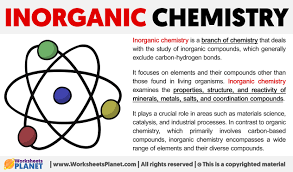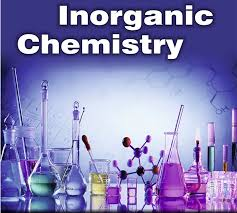
Inorganic Chemistry is a branch of chemistry that deals with the properties and behavior of inorganic compounds. This course provides a comprehensive overview of the fundamental concepts and principles of inorganic chemistry, including:
-
Chemical Bonding: Explore the nature of ionic, covalent, and metallic bonds, and understand molecular geometry and hybridization.
-
Coordination Chemistry: Study coordination compounds, their structures, bonding theories, and the role of ligands.
-
Main Group Elements: Examine the chemistry of the main group elements, including their reactivity, trends in the periodic table, and applications.
-
Transition Metals: Investigate the unique properties of transition metals, including their electronic configurations, oxidation states, and their role in catalysis.
-
Bioinorganic Chemistry: Understand the significance of metals in biological systems, including metalloproteins and metalloenzymes.
-
Solid State Chemistry: Explore the structure, properties, and synthesis of inorganic solids, including crystallography and defects.
Learning Outcomes:
By the end of this course, students will be able to:
- Explain the fundamental principles of inorganic chemistry and apply them to solve problems.
- Analyze the structure and bonding of inorganic compounds using various theories.
- Demonstrate knowledge of the role of inorganic substances in biological and industrial processes.
- Conduct laboratory experiments to synthesize and characterize inorganic compounds.
